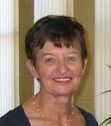ResourceShelf
Designing Usable, Self-Paced e-Learning Courses: A Practical Guide
By Michael Feldstein, SUNY Learning Network, and Lisa Neal, eLearn Magazine
This guide was primarily designed to help teams of instructional designers and content experts create effective, self-paced e-learning. It teaches best practices for improving usability that can be applied by any instructional designers or content experts and was created so that no prior knowledge of usability is required to use the techniques. (Great article, precisely summarises key approaches and useable processes!)
In July, The World eBook Fair took place offering more than 330,000 FREE full text books, all in PDF format, all ready for downloading, bookmarking, sharing. We’ve learned that another World ebook Fair will take place in October. It’s sponsored by The World eBook Library Consortia that offers these materials year round for a small fee.
From a news release:
5,000 new eBooks for cellphones are being added this week and this is only 1% of the hoped for 500,000 eBooks being targeted for release on the first day of October in honor of International Book Fair Month. Up from the 1/3 million eBook files offered for download, all free of charge, on July 4, in response to requests of eBook readers around the world, more eBooks were added to include more modern selections via commercial sources and a wider variety of formats, which could total 1/2 million eBooks in October. If all goes perfectly well there will be 1/2 million free eBooks, AND over 100,000 from various commercial eBook sources.
